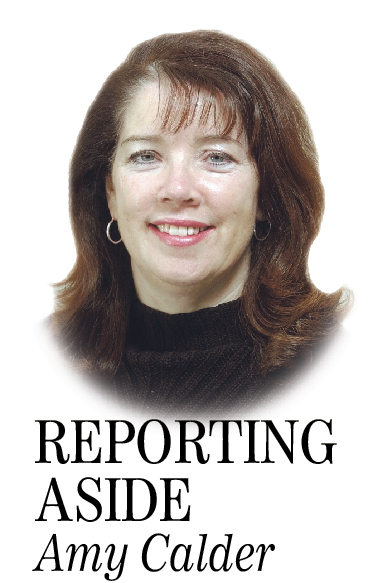I never thought I’d see the day the phone book became obsolete.
In the old days of newspapering, it was invaluable.
We never threw out phone books in the newsroom of the ’80s and ’90s.
If we couldn’t find a phone number in the newest phone book, we’d look in an older one and, more often than not, find what we needed.
And if not, we’d consult an even older one.
I used to keep a phone book everywhere — at home, in my car, on my desk; it was probably one of the more important reference books in my collection.
Remember encyclopedias?
Talk about reference books. When we were kids, we did our homework in the closest proximity to encyclopedias that we could find.
It was the same with the dictionary and thesaurus. They were important when we were kids, even more so when we became college students.
I don’t remember exactly when my Webster’s Dictionary and Roget’s Thesaurus got moved from a prominent place on my office desk, within easy reach, to a more remote location, closer to less important things, such as the world atlas and a Maine map. But they did get moved over time, ever so subtly, and by my own hand.
First, they were right in front of me, where I could pluck them quickly, flip through their pages and pinpoint what I needed. Over time, they’d become worn and torn and yellowed until it was time to buy updated versions.
Eventually, as the Internet proved more user-friendly and more convenient than books, I relegated the dictionary and thesaurus to my lower left desk drawer — again without major decision-making or fanfare.
And the atlas and Maine map? Long gone, in this age of Internet and GPS.
I open my desk drawer today and find the latest edition of “The Associated Press Stylebook,” a 1902 version of the hardcover book “The Centennial History of Waterville,” and a tiny Newspaper Guild handbook; and there, tucked in the side of the drawer, are the “Merriam-Webster Dictionary” with a 1997 copyright, and “The Concise Roget’s International Thesaurus, Revised and Updated Sixth Edition” — copyright 2003.
While obviously I no longer need either, I believe I keep them there for — what reason?
Maybe to remind me of where I came from, before I had not one but two computer screens on my desk — one to write my stories on and the other to access and write emails, check Facebook and Twitter, post my stories, check the newspaper’s website, access the electronic archives and, yes, search for historical records, people, places and words — all those things I used to get from the dictionary, thesaurus, atlas, maps, encyclopedias and other reference materials.
I’ve no doubt that one day my dictionary and thesaurus will disappear from my drawer, as will the paper files I’ve been keeping there just in case the whole computer world blows up and I can tell younger reporters “I told you so.”
But those four Waterville phone books dating back to 2007 that I keep on my desk aren’t going anywhere.
Granted, they are to the far left of my desk calendar, which I suppose I don’t need anymore, and behind a tray holding my blank expense sheets, which soon will become unnecessary because we are going to be doing them electronically — and a few sheets of Morning Sentinel stationery and envelopes, which I seldom use anymore.
But I refuse to relegate those phone books to my desk drawer, even though the telephone company says future phone books will not contain residential white page listings. Those will be available only upon request.
Call me old-fashioned, but I call that the end of an era.
Amy Calder has been a Morning Sentinel reporter 27 years. Her column appears here Mondays. She may be reached at acalder@centralmaine.com
Copy the Story LinkSend questions/comments to the editors.



Success. Please wait for the page to reload. If the page does not reload within 5 seconds, please refresh the page.
Enter your email and password to access comments.
Hi, to comment on stories you must . This profile is in addition to your subscription and website login.
Already have a commenting profile? .
Invalid username/password.
Please check your email to confirm and complete your registration.
Only subscribers are eligible to post comments. Please subscribe or login first for digital access. Here’s why.
Use the form below to reset your password. When you've submitted your account email, we will send an email with a reset code.